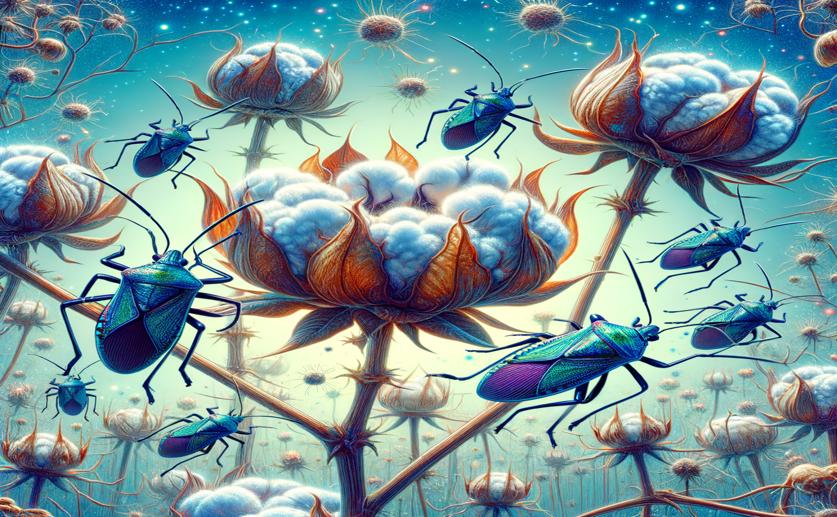
Cotton Engineered with Mpp51Aa2 Affects Predator Bug Lifespan and Reproduction
Jenn Hoskins
7th April, 2024

Image Source: Natural Science News, 2024
Key Findings
- A new GE cotton variety, MON 88702, effectively controls pests like Lygus spp. and thrips, reducing the need for chemical insecticides
- MON 88702 cotton's Bt protein is over 200 times more effective against Lygus spp. than the original version, significantly decreasing pest populations
- While the Bt protein can negatively affect the lifespan and reproduction of beneficial pirate bugs (Orius spp.), varied diets and lower Bt concentrations in the field limit this risk
References
Main Study
1) Prey-mediated effects of Mpp51Aa2-producing cotton on longevity and reproduction of Orius majusculus
Published 5th April, 2024
https://doi.org/10.1007/s11248-024-00378-w
Related Studies
2) First transgenic trait for control of plant bugs and thrips in cotton.
3) A transgenic approach for controlling Lygus in cotton.
4) Prey-mediated effects of mCry51Aa2-producing cotton on the predatory nontarget bug Orius majusculus (Reuter).



 31st March, 2024 | Jenn Hoskins
31st March, 2024 | Jenn Hoskins